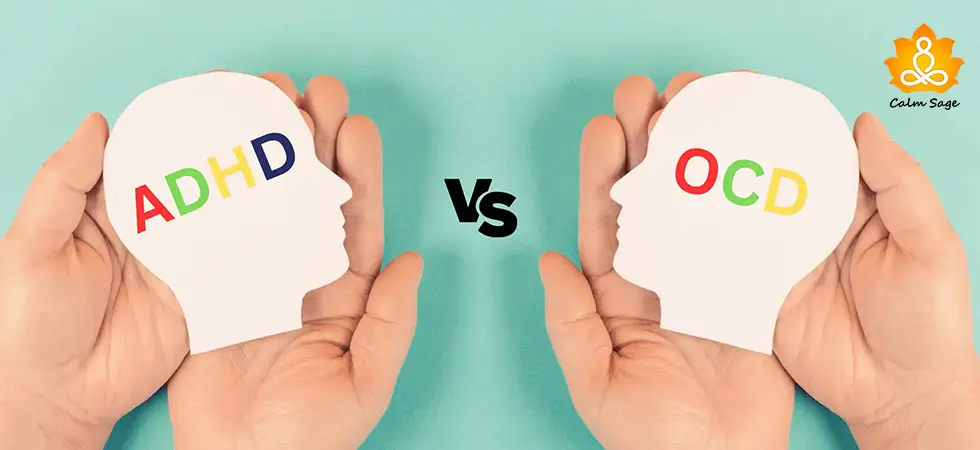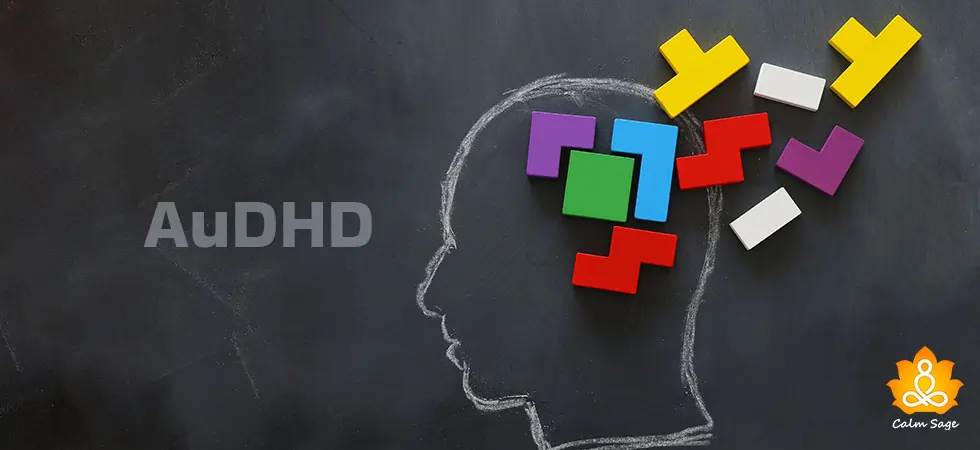Untreated ADHD In Adults Can Have Lifelong Consequences: Here Are Some Of Them
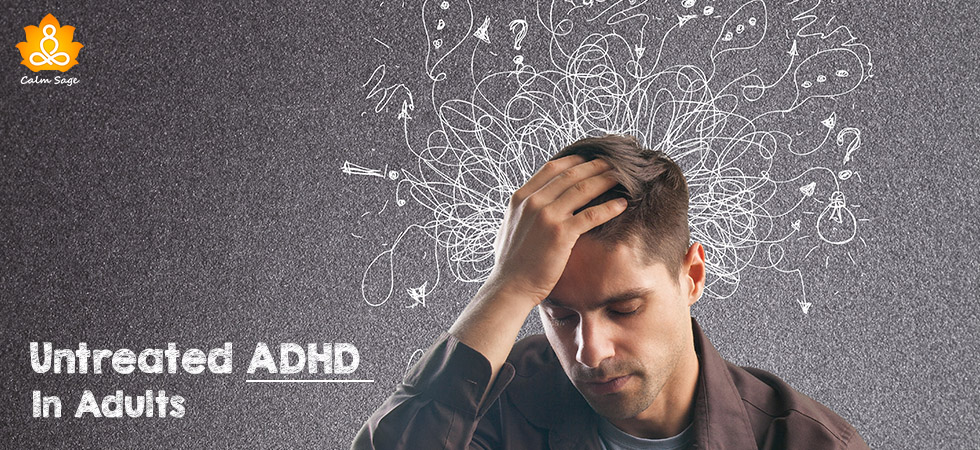
One of the most commonly diagnosed disorders in children is Attention Deficit Hyperactivity Disorder or ADHD. However, what many people don’t realize is that almost two-thirds of ADHD cases continue into adulthood.
ADHD is mostly diagnosed in adults between 18-40 years old, yet, only less than 20% of adults receive a proper diagnosis, care, and treatment.
Did you know that untreated ADHD in adults can lead to one developing functional impairments and cause a poor quality of life?
Untreated ADHD in adults can cause issues such as impulsive behavior, short attention span, and other neurological impairments that can affect academic performance, work performance, and troubles in relationships.
In this blog, let’s take a look at some of the most common risks of untreated ADHD in adults, the signs, and how to treat untreated ADHD in adults.
Signs Of Untreated ADHD In Adults
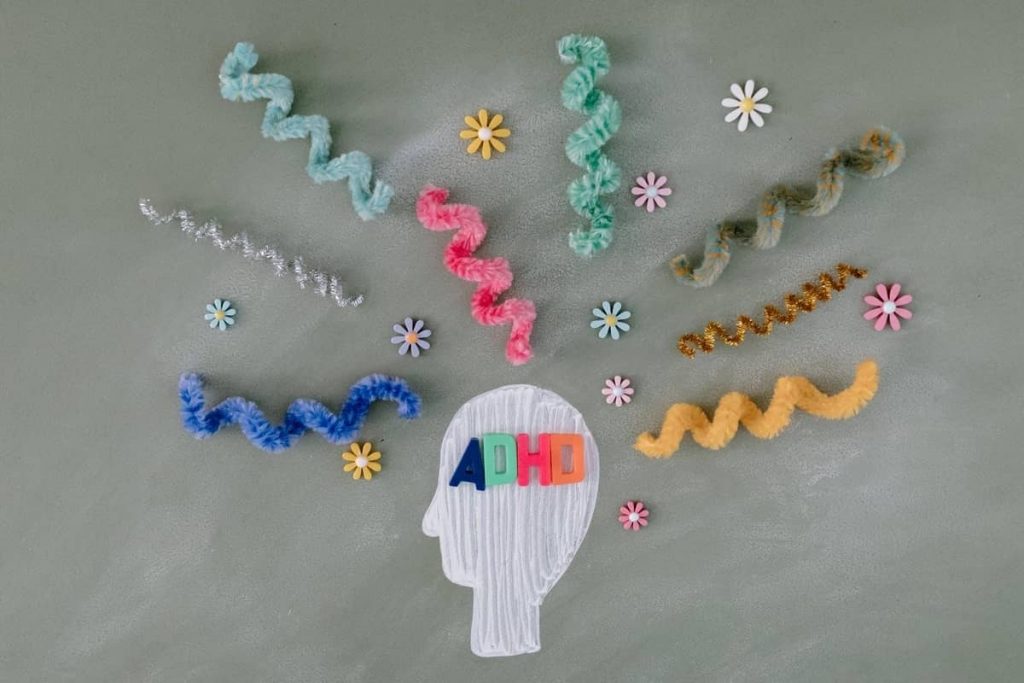
ADHD is a neurodevelopmental disorder. When issues with neurological pathways occur during the early developmental stages of the brain, it can create a delay in development. ADHD is developed when different parts of the brain take a hit including the prefrontal cortex, the part of the brain that takes care of executive functions and mental skills such as:
- Memory
- Organization
- Time Management
- Focus
- Attention Span, etc
Adults with ADHD can show signs of inattention, hyperactivity, and impulsivity.
Inattention signs can be:
- Have a problem paying attention to a task
- Have problems following instructions
- A lack of organizational or time-management skills
- A habit of losing things such as wallets, keys, etc
- Being easily distracted
Hyperactivity signs can include:
- Extreme restlessness and an inability to sit still
- Fidgeting, squirming, or continuous tapping of hands or feet
- Excessive talking
Impulsivity signs can be:
- Acting without a thought
- Making inappropriate remarks without much consideration
- Having problems waiting for long periods
- Interrupting or intruding on others
Is There A Difference In Symptoms Between Genders?
While ADHD is common in males, the symptoms can manifest differently in both men and women. However, ADHD in adult women is left undiagnosed.
Symptoms in men may look like this:
- Excessive hyperactivity and impulsivity
- Anger issues and managing anger
- More risk of car accidents due to impulsivity
Symptoms in women may look like this:
- Inattentiveness
- Feeling out of control
- Excessive anxiousness, stress, and tiredness
- Increased stress levels
Risks Of Untreated ADHD In Adults
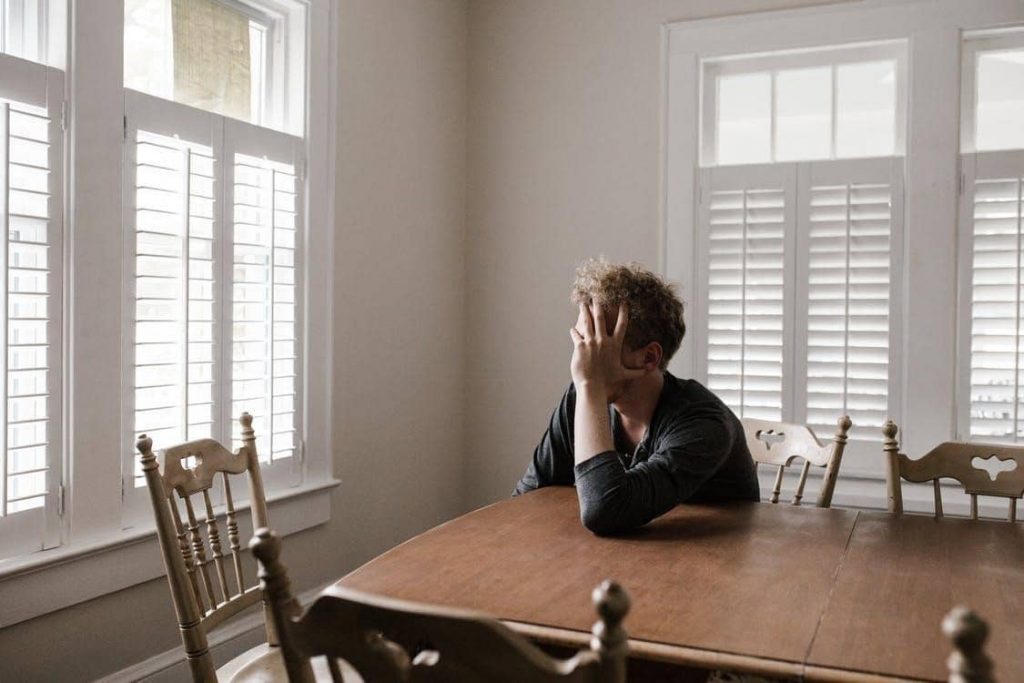
Untreated ADHD in adults can affect areas in life such as work, school, relationships, and poor quality of life.
Other risks of untreated ADHD in adults can be:
1. Poor self-esteem: Adults with untreated ADHD often experience negative beliefs because of the difficulties in functioning. Many studies suggest that ADHD in adults is connected to poor self-esteem, but with treatment, this issue can be treated.
2. Anxiety: Approximately 50% of adults with untreated ADHD struggle with anxiety disorders. However, medications and psychotherapy for anxiety can improve both anxiety and ADHD.
3. Relationship issues: Studies suggest that untreated ADHD in adults also shows increased levels of emotional dysregulation or an inability to manage emotions. Managing emotions such as impatience and anger can be harder with untreated ADHD. Treating ADHD with therapy to learn communication skills can help.
4. Job instability: Untreated ADHD in adults can also cause struggle with challenges such as poor communication skills, easy distraction, indecisiveness, etc. Treating ADHD with psychotherapy can help in learning skills to manage these challenges.
5. Substance use: Many studies point out that adults with untreated ADHD are more likely to be nicotine-dependent. Adults with ADHD are 50% more likely to have an alcohol use disorder.
6. Risk of premature death: Studies also imply that untreated ADHD in adults has an increased risk of premature death. This data is based mostly on accidents caused by impulsivity and suicide. Getting a long-term treatment for ADHD can help reduce impulsivity and the risk of suicide.
Getting Help For Untreated ADHD In Adults

Getting help for untreated ADHD in adults, especially in medications and psychotherapy, can help decrease ADHD-caused accidents, cognitive impairments, substance abuse, and risk of self-harm.
1. Medications:
Medications used to treat ADHD can be antidepressants, stimulants, non-stimulants, and medications designed to influence the release of dopamine. It is highly recommended that you take prescribed medications only. Please consult with your physician before taking any medications as they may have side effects that can worsen your condition.
2. Psychotherapy:
There are two types of therapy approaches that can be effective for treating ADHD in adults.
- Cognitive-behavioral therapy (CBT): CBT is a form of talk therapy that focuses on reframing thoughts, feelings, and behaviors that impact each other. Changing thinking and challenging negative or maladaptive thoughts can help change the behavior. CBT can also help in improving emotional regulation, impulse control, and stress management.
- Dialectical behavior therapy (DBT): DBT is based on the concept of cognitive-behavioral therapy but with many differences. DBT is designed to improve emotional regulation challenges in borderline personality disorder or BPD but it has been effective in treating conditions with emotional dysregulation. In DBT, the focus is on self-acceptance, adapting flexible thinking, and skill-building.
Also Read: Comparing and Contrasting CBT and DBT: Are they similar?
Likely Benefits Of ADHD
ADHD doesn’t always have to be challenging. This disorder carries many hidden benefits as well:
- Increased Creativity: Adults and even children with ADHD are usually innovative, imaginative, and are considered creative thinkers.
- Hyperfocus: Adults with ADHD are hyper focused which can help when total involvement in a task is required. Of course, this can help increase productivity in certain areas.
- Adventurous: ADHD in adults can also come with being brave and adventurous. Adults with ADHD are more likely to seek thrilling activities and extreme sports than those without.
- Increased Energy: Adults with ADHD are often described as having extra energy. This comes with a desire to use this extra energy as motivation to reach their potential and increase productivity.
Writer’s Thoughts
While ADHD is commonly viewed as a childhood developmental disorder, this disorder can continue into adulthood if not diagnosed earlier. If left untreated, ADHD in adults can cause lifelong impairments.
Consequences of untreated ADHD in adults can include poor executive functioning, poor self-esteem, increased risk of depression and anxiety among others.
However, with the right diagnosis and treatment, ADHD in adults can be treated. When it comes to mental health disorders including ADHD, there are social stigmas that prevent adults with untreated ADHD to reach out for professional help.
Please keep in mind that seeking treatment for untreated ADHD can help make a huge difference in your quality of life. If you or someone you know is struggling with signs of untreated ADHD, please connect with a mental health professional immediately.
If you need help connecting with a professional, you can write to us at info@calmsage.com or you can drop us a message on our social media.
If you found this article helpful, give us a thumbs-up and leave a comment in the box below!
Take care and stay safe.






